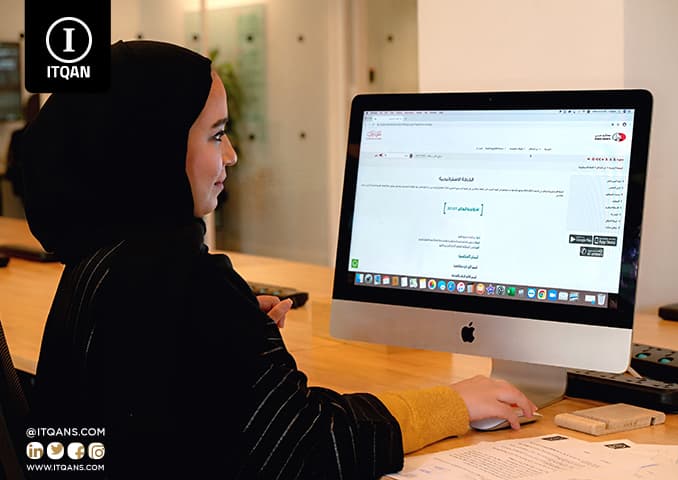Dubai is considered one of the most attractive investment destinations in the world, thanks to the distinguished investment environment it provides. But success in this developed market requires a careful understanding of the investment laws that regulate economic activity in the emirate. In light of the rapid growth and continuous development, Dubai has launched a set of laws and legislation aimed at promoting investment and attracting investors from around the world. These laws play a crucial role in defining the legal and regulatory framework within which investors operate, and help create a transparent and encouraging business environment.
Investment laws in Dubai cover a variety of aspects, from business licensing requirements to foreign ownership regulations and tax exemptions. In recent years, the government has made significant amendments to these laws to make them more investor-friendly. For example, initiatives have been introduced to streamline the procedures for obtaining business licenses, reducing the time and cost required to start a business. Foreign ownership laws have also been improved to allow investors to own a greater percentage of companies in some sectors.
In addition, Dubai offers great advantages through free zones that provide a tax-free business environment, making it a preferred destination for international companies. These areas also provide great flexibility in owning companies, which contributes to attracting foreign investments.
By understanding Dubai’s investment laws, investors can make informed decisions about how to enter the market and exploit available opportunities. In this article, we will discuss in detail the most important laws and legislation that form the basis of the investment environment in Dubai , highlighting how investors can benefit from them.

جدول المحتوى
ToggleAccommodation in Dubai
Dubai is one of the most desirable destinations to live and work thanks to its modern urban environment and high quality of life. The city offers a variety of accommodation options to suit all tastes and budgets, from luxury apartments in skyscrapers to spacious villas in quiet residential areas. Accommodation areas in Dubai are divided into multiple categories, with major residential areas such as Dubai Marina, Downtown Dubai and Jumeirah, offering luxurious amenities and stunning views.
Dubai is distinguished by its residency opportunities that suit different nationalities and social segments. Foreign expats can enjoy residency options through various residence visas, including work and long-stay visas, which the government provides to investors and business owners. The facilities provided by Dubai, such as expediting visa procedures, contribute to attracting more expatriates and businessmen.
On the other hand, Dubai also provides customized residency programs for investors and families, such as Golden Residence Visas granted to foreign investors and distinguished talents, allowing them to benefit from benefits such as long-term residency and not having to renew visas frequently. Dubai also strives to enhance the stability and well-being of residents by providing advanced infrastructure that includes international schools, modern hospitals, and upscale shopping malls.
With its cosmopolitan environment and opportunities, Dubai remains an attractive destination to live and work, where residents can enjoy a modern and opportunity-filled life in one of the most innovative and advanced cities in the world.
Investing in Dubai
Many young people and businessmen are working hard to reach Dubai in particular and the Emirates in general and invest in it. Dubai is a meeting place for many businesses and projects, so you must get to know the most important businesses that help invest in Dubai .
In order to succeed in the investment process in Dubai and the Emirates, you, as a businessman, must conduct a research study on the requirements of the labor market, and in this way it is possible to identify what the market lacks or what it needs, and every investor must know that the profitable result of investment is not only in the short term, but in the long run. Long term so as not to get frustrated, and one of the most important tips that must be followed when investing in Dubai is that the types of investments must be diversified and not rely on one business. Therefore, a solid plan must be developed that includes all aspects of the investment process in Dubai in particular and the Emirates in general.
Another important piece of advice that must be taken into consideration is that the work team includes a group of experts specialized in the field of investment and trade in general and who have comprehensive and complete knowledge of the labor market and the field of investment in Dubai and the Emirates in particular. In the case of borrowing from banks, you must, as a businessman or young man, looking for a good project Do not risk that money in businesses in which you have no experience, so as not to fail.
Establishing a company in Dubai for foreigners
Establishing companies in all countries has investment procedures and laws in Dubai that must be taken into account so that they do not fall under the law. In this article, the laws and procedures for establishing companies in Dubai will be learned.
In order to ensure the success of the business in Dubai, you must know the business that you will create and know the purpose of this business to start investing in Dubai. In the Emirates, the procedures for establishing a company via the Internet have become easier and easier than before, so the businessman who wants to establish a company in Emirates or Dubai by sending sufficient information about the company regarding the name and activity on which the company is based.
After submitting the application to establish the company in Dubai online, the employer pays all the fees required to start establishing and establishing the company in Dubai.
As we mentioned before, an integrated research study must be carried out on everything related to the region and the business that you will establish in Dubai. Therefore, the free zone in Dubai is considered one of the most important regions that enjoy a suitable atmosphere for the labor market that you wish to establish in the region, and the free zone has facilitated all Regarding establishing a business in Dubai, as well as procedures for establishing companies in the region.
In order for the business and company that you want to establish in Dubai to succeed, you, as an employer, must fully comply with everything related to the region, whether in terms of customs, traditions, or customs, as well as the investment laws in Dubai that the region stipulates for those who live there or have their own business in the region.
Good and kind treatment is the main attraction factor in any business and it is one of the most important tips that must be followed when establishing a company or business in Dubai. Good treatment is the basis for attracting individuals and companies who want to cooperate with you as a new business owner when they want to establish a company and business in Dubai.
Investment laws in Dubai
Dubai’s investment laws are designed to provide an encouraging and safe business environment for investors from around the world, with a focus on facilitating procedures and enhancing transparency. Here is an overview of some of the main laws and legislation related to investing in Dubai:
- Corporate Law: Dubai’s corporate law regulates how companies are established and managed. This law covers different types of companies, such as limited liability companies (LLC), joint stock companies, and sole proprietorships. The law addresses licensing requirements, necessary legal procedures, and registration requirements.
- Free Zones Law: Free zones in Dubai provide special benefits to investors, such as tax exemptions and no restrictions on ownership of foreign shares. Free zone laws regulate how companies are registered in these zones, requirements for obtaining licenses, and conditions for renewing residency and visas.
- Foreign ownership laws: The United Arab Emirates allowed an increase in the percentage of foreign ownership in some sectors of companies operating in Dubai, in order to encourage foreign direct investment. Foreign ownership laws determine the permitted percentages and how foreigners own shares in companies.
- Investor Protection Law: This law includes a set of laws and legislation that aim to protect the rights of investors and provide a legal framework for resolving disputes. The law focuses on transparency and disclosure, and establishes controls to protect investors from unfair practices.
- Labor Laws: Labor laws in Dubai define the rights and duties of employers and workers. These laws address employment, working conditions, social rights, and compensation. These laws contribute to creating a fair and orderly work environment.
- Tax Laws: Dubai has an attractive tax system, providing tax exemptions for many business activities, especially in free zones. However, there are laws that determine the taxes applicable to companies in non-free zones and any other taxes that may apply.
- Trade Law: This law regulates how business is conducted in Dubai, including regulating commercial contracts, the rights and obligations of contracting parties, and how to resolve commercial disputes.
Procedures for establishing a company in Dubai
Establishing a company in Dubai requires following a series of legal and administrative procedures to ensure compliance with local laws and achieve success in the market. Here are the basic steps to establish a company in Dubai:
- Determine the type of company: Before starting, you must determine the type of company you want to establish, whether it is a limited liability company (LLC), a joint stock company, a branch of a foreign company, or a company in a free zone. Each type of company has its own requirements and laws.
- Choosing a company name: Choose a trade name that complies with Dubai laws. The name must be unique and not previously used, and must avoid using words that may be sensitive or contrary to public ethics.
- Choosing a business activity: Determine the business activity that the company will undertake, as the activity must comply with the license that you will provide. Make sure that the desired activity is permitted in the region or sector of your choice.
- Apply for a license: After determining the company name and activity, you need to apply for a business license. The license can be obtained from the Department of Economic Development in Dubai or from the local authority in the relevant free zone.
- Preparing legal documents: Prepare all required legal documents, such as the company’s articles of incorporation and articles of association. You may also need to provide other documents such as passports and signature authorizations.
- Office rental: Make sure to provide a physical office address for the company, whether it is in a free zone or in Dubai itself. Some free zones can offer virtual office services if they match the type of activity.
- Open a bank account: Open a company bank account at a local bank. You will need to submit the company’s legal documents in addition to the bank’s requirements.
- Issuing residence visas: After obtaining the license, you can apply for residence visas for investors and employees. You will need to submit visa applications to the General Directorate of Residency and Foreigners Affairs in Dubai.
- Registration with local authorities: Register the company with local authorities such as Dubai Municipality and the Tax Department if the activity requires this.
- Comply with Local Laws: Make sure to comply with all local laws and regulations, including registering for Social Security and paying required fees.
By following these steps, you can set up your company in Dubai smoothly and efficiently, allowing you to take advantage of the advanced business environment that the city has to offer.

Costs of establishing a company in the UAE
The costs of establishing a company in the UAE vary based on several factors related to the type of company, its location, and the type of business activity. Here are some of the main factors that affect the cost:
- Company type: The cost of establishing a company varies depending on its type, whether it is a limited liability company (LLC), a joint stock company, a branch of a foreign company, or a company in a free zone. Each type has different cost requirements.
- Location: The cost of accommodation in different areas of the Emirates varies. Establishing a company in free zones may be less expensive compared to non-free zones, as free zones offer benefits such as tax breaks and virtual office services.
- Licensing: Obtaining a commercial license requires paying certain fees, which depend on the type of business activity and the requirements of the licensor.
- Office rent: Renting an office for the company is one of the basic costs. Costs can be different based on location and office size.
- Legal documents: Preparing legal contracts and company articles of association requires costs for legal consultants. These costs include writing and notarizing the required documents.
- Residence visas: Issuing residence visas to investors and employees requires payment of a fee, which depends on the number and type of visas.
- Registration with local authorities: Registration costs with local authorities such as municipalities and the tax department can vary based on activity and location.
- Additional Services: Costs may also include additional services such as accounting, consulting, and insurance services.
In conclusion, Dubai’s investment laws represent a comprehensive and advanced framework aimed at enhancing the business environment and facilitating the investment process in this global city. As Dubai continues to strive to be a leading investment destination, these laws emerge as essential factors that support the achievement of investors’ goals and provide them with legal security and promising opportunities.
Laws related to companies in Dubai contribute to regulating and facilitating the establishment of companies of various types, whether they are limited liability companies (LLC), joint stock companies, or companies in free zones. By offering benefits such as tax exemptions and freedom of foreign ownership in some areas, Dubai provides an attractive business environment for international investors.
Laws related to protecting the rights of investors also ensure the provision of a legal framework to protect the rights of all parties and enhance transparency in commercial transactions. These laws contribute to building investor confidence and ensuring that there are clear, fair-based rules for resolving disputes that may arise.
In addition, Dubai offers additional benefits by regulating labor and tax laws, which contributes to creating a favorable environment for investment and growth. By adhering to local laws and conducting the necessary legal studies, investors can avoid legal problems and ensure compliance with all requirements.
The most important frequently asked questions about investing in Dubai
How long does it take to establish a company in Dubai?
The time period depends on the type of company and registration procedures. In general, it can take from a few weeks to several months to complete all the steps from applying for a license to obtaining residence visas.
What are the recent amendments to investment laws in Dubai?
Laws and legislation change regularly to improve the business environment. It is important to follow updates from local authorities or consult a legal advisor for the latest amendments and changes in investment laws.
What types of visas are available to investors in Dubai?
Several types of visas are available for investors, including long-stay visas (golden visas) granted to investors and successful entrepreneurs. There are also work and residence visas for investors and employees of the company.
What are the necessary procedures to renew commercial licenses in Dubai?
Renewing commercial licenses requires submitting an application to the Department of Economic Development or the relevant authority in the free zone, submitting the required documents such as the renewed lease contract, and updating the company’s information if necessary. You must also pay the prescribed fees and renew the visas if they are valid.
What are the steps taken to deal with local laws and legislation in Dubai?
Investors must comply with local laws and legislation by following any new updates, and cooperating with legal advisors or companies specialized in incorporation services. It is also important to review the regulations related to the business and ensure compliance with all requirements.


















